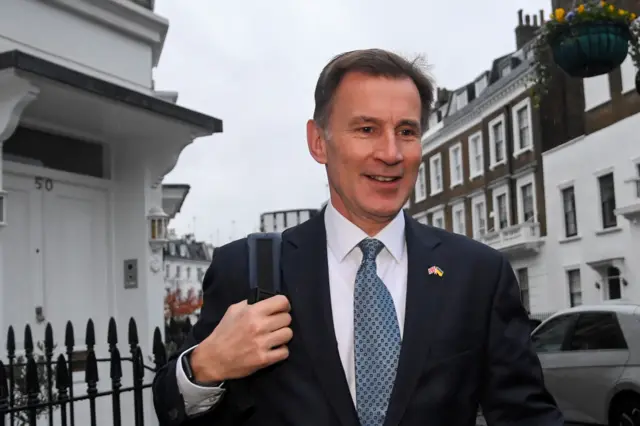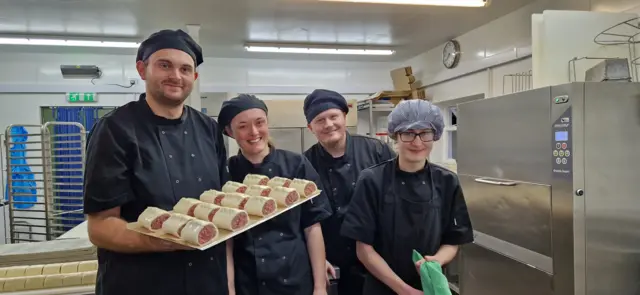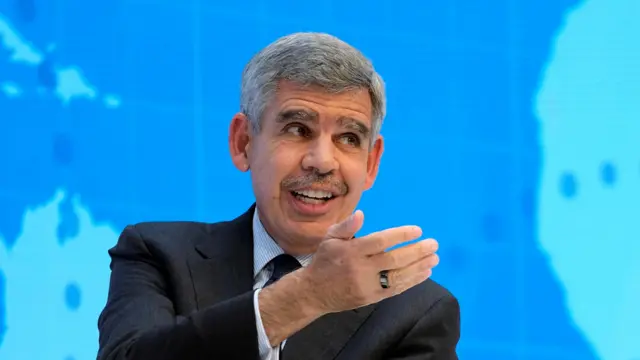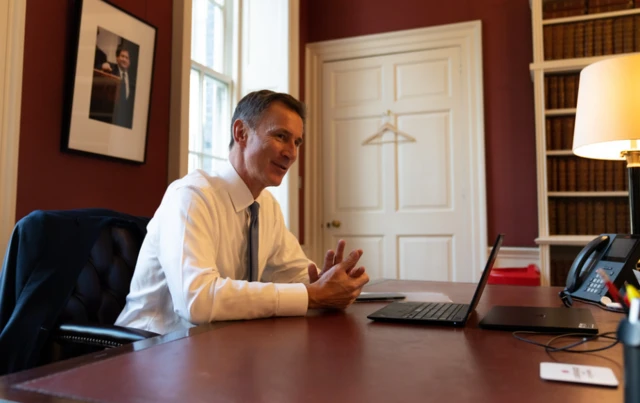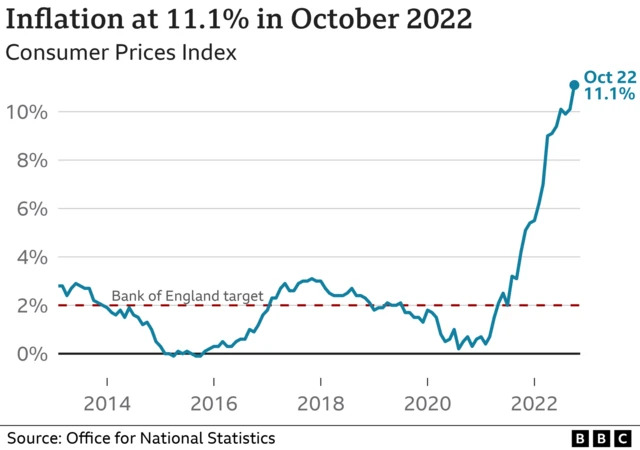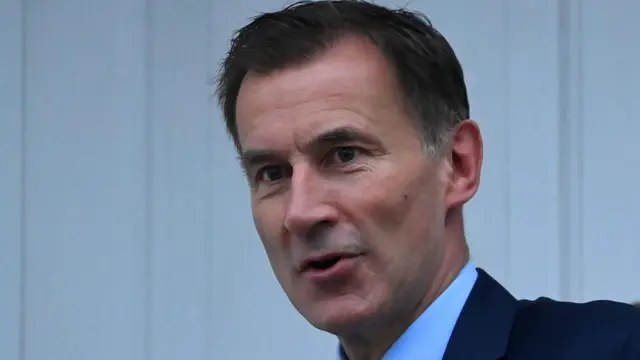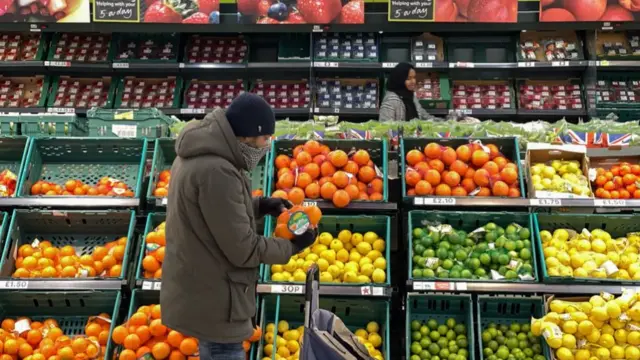Gloucestershire farmer on rising costs: It's cripplingpublished at 09:22 GMT 17 November 2022
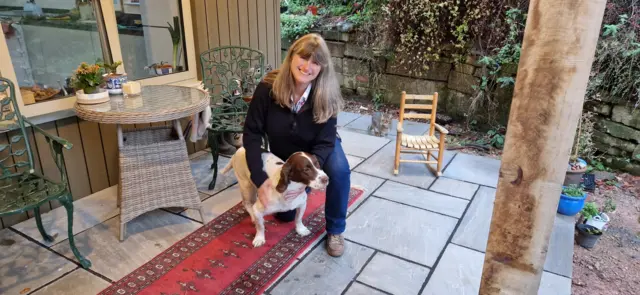
Cinderhill Farm co-owner Deborah Flint, with Levi and Dino
Deborah Flint, who co-owns Cinderhill Farm in Gloucestershire, says price rises at the moment are "absolutely crippling".
The farm, which produces speciality sausage rolls and pastries from its animals on site, is facing soaring energy prices, with annual bills rising from £6,500 to an estimated £78,000.
The cost of feeding the animals has also risen sharply, fuelled further by the war in Ukraine which pushed up the price of grain.
"We get people telling us the price of pork has gone down, and yet the price of feed has gone up 43%," she says.
"Someone is paying for it and the person that’s paying for it is the farmer, in losses."
Flint says the most important thing to see from the Chancellor today is stability.
She adds:
Quote MessageIt feels like things are spiralling out of control, it’s very hard as a business owner to plan. We have not enough knowledge of what’s ahead of us, so I think stability is the big thing for me."

